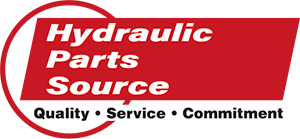Hydraulic Parts: How to Make Green Choices
Environmental impact may or may not be on your mind when ensuring hydraulics systems are functioning optimally.
Luckily, choices made for functionality or cost may already be working to provide some earth-friendly benefits. Some of these greener, earth-friendly choices include:
- Remanufacturing of OE parts
- Proper oil selection
- Regular inspections to find leaks
- Selling old cores to remanufacturers
To help you upgrade your “green” status and avoid needless detrimental impact on the environment, here are five ways the hydraulics industry can contribute, or continue to contribute, to lowering its carbon footprint.
Green Choice #1: Remanufacturing
One of the best ways to reduce waste is to repurpose parts through remanufacturing.The remanufacturing process is ideal not only economically, but environmentally. Helping to reduce waste by repurposing parts, remanufacturing can also expand the life of the system and be cost effective.
Hydraulic Parts Source is an expert at this process, which includes inspection and replacement of faulty hydraulic pumps, motors, or valve cores when they fail.
The process includes scrapping old parts, but keeping the ones that still meet OE specifications, and the result is a customized and quality product without having to scrap usable parts.Green Choice #2: The Right Hydraulic Fluid
Whether hydraulic fluids are chosen with viscosity, density, weight, temperature, or cost in mind, finding the right fit can also lessen environmental impact.If an oil choice meets operation needs, chances are it is the most environmentally responsible.
For example, if you need a low-viscosity fluid, benefits include oxidation stability, corrosion protection, lubricity, and have a long service life. Hydraulic oils with a good oxidation resistance will not only last longer but will prevent build up on valves and an avoidable need to replace parts.If high-viscosity fluids are needed, however, it will offer greater mechanical effectiveness, which improves energy efficiency and reduce oil consumption.
Chances are that the right fluid for the job will keep systems running more efficiently and have less environmental impact.Green Choice #3: Finding and Preventing Leakage
Finding and preventing internal and external leaks can help avoid two environmental issues:- Wasteful replacement or system failure
- Spills that contaminate groundwater or soil
Proper maintenance can also help prevent corrosion of metal surfaces that can lead to internal and external hydraulic system leaks.
Green Choice #4: Code Compliance
Compliance with international, federal, state, local/municipal standards or codes is an important way to avoid toxic and dangerous environmental hazards.For example, hazardous locations codes (classified by type, conditions, and nature) are set by the National Electrical Code (NEC). Code compliance sets standards for locations where fire or explosion hazards may exist due to flammable gases or vapors, flammable liquids, and combustible dust.
The Environmental Protection Agency offers regulatory information by business sector, state-specific Compliance Assistance Centers, and an oil spill prevention program that includes the Spill Prevention, Control, and Countermeasure (SPCC) and the Facility Response Plan (FRP) rules.
Green Choice #5: Disposal, Reuse, and Clean Up Practices
Even if a “biodegradable” or “non-toxic” fluid is used, they are not harmless to the environment and must be disposed of properly. You must also have a plan for what to “do” with old hydraulic parts besides disposing of them.Disposal alternatives include:
- Reclaiming old hydraulic fluids
- Recycling fluids
- Donating unused fluids
- Selling old cores to scrap or, better yet, selling hydraulic cores to remanufacturers like HPS who will get them operable again
Be Environmentally Aware
Chances are that you’re some of these greener choices already, but as with anything, there’s always a benefit when you consider what you can improve.Be aware of how choices made for quality and affordability reasons can also avoid unnecessary impact the environment, such as leaks, pollution, and excess waste.
Making purposeful steps with the Earth in mind can move distributors and end-users alike toward actions that leave a smaller footprint.
